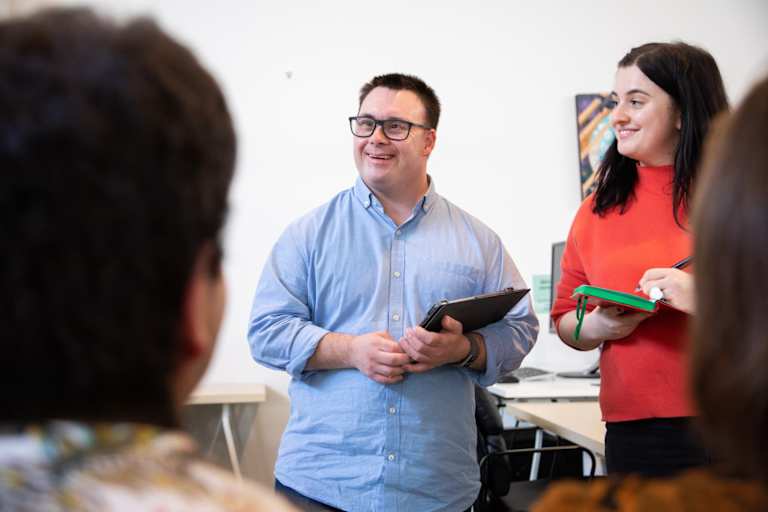How to Become an Licensed Counselor in Missouri
- Licensure Requirements
- How Long Does it Take?
- Out-of-State Licensing
- Counseling Renewal
- Salary Expectations
- Professional Organizations
- FAQ
The demand for mental health professionals continues to rise in Missouri. Counselors help fill the gaps in treatment and services for those who need assistance coping with life’s challenges.
According to Projections Central, Missouri’s counselors specializing in substance use or mental health may see an 18.2% job growth between 2022 and 2032. Other counseling specialties also need more practitioners to provide services.
Review the different types of Missouri counseling licenses, application requirements, and career opportunities.
Missouri Counselor Licensure Requirements
Missouri offers several types of counselor licenses. The Committee for Professional Counselors oversees the licensure of licensed professional counselors (LPCs) in Missouri, while the State Committee of Marital and Family Therapists issues licenses to marriage and family therapists (MFTs).
If you plan to pursue a career as a school counselor, the Department of Elementary and Secondary Education (DESE) oversees that certification process.
How Long Does it Take to Become a Counselor in Missouri?
Many factors determine how long it takes to earn a Missouri counseling license, but you can expect to spend at least 6-8 years obtaining essential education and experience. A master’s degree is the minimum educational requirement for all three types of counselor licenses in the state.
Following a four-year bachelor’s program, you will typically complete a master’s in two years. LPCs and MFTs will then need to spend an additional 2-5 years completing 3,000 hours of supervised experience. You can also explore faster ways to earn a counseling license.
Out-of-State Licensing Reciprocity in Missouri
Missouri grants licensing reciprocity to qualified applicants on a case-by-case basis. LPC licensing reciprocity requirements include full licensure in another state for at least one year, licensure documentation, and completion of a background check.
LMFT licensing reciprocity requirements include licensure in another state and documentation of that state’s licensure requirements, date of original licensure, and applicant’s examination results.
School counselors with a valid professional student services certificate in another state may be awarded a Missouri certificate in the equivalent area with no further coursework or test requirements in most cases.
All applicants should contact their state board website for up-to-date licensure regulations.
How to Renew a Counseling License in Missouri
The requirements to renew a Missouri counseling license varies by the license type.
LPCs and LMFTs must renew their licenses every two years, completing 40 hours of continuing education hours (CE) before the license expires. Acceptable CE may include postgraduate coursework, research contributions, teaching at an accredited institution, attending workshops or seminars, and self-study.
For school counselors, an initial student services certificate is valid for four years from the date of issue. Professionals can upgrade to a career student services certificate after obtaining four years of experience, two years of mentorship, and at least 40 professional development hours. The career student services certificate is valid for 99 years, with no CE mandates.
Salary Expectations for Counselors in Missouri
Several factors can impact your compensation as a counselor, including your speciality, location, employer, and years of experience. Marriage and family therapists earn the highest annual salaries among Missouri’s counselors, averaging $70,010, according to the Bureau of Labor Statistics (BLS).
Counselors in Missouri earn salaries that generally align with national averages. However, educational, guidance, and career counselors are an exception, with an average salary of $57,120 in Missouri, compared to the higher national average of $71,520.
| Occupation | Average Hourly Salary | Average Annual Salary |
|---|---|---|
| Educational, Guidance, and Career Counselors and Advisors | $27.46 | $57,120 |
| Marriage and Family Therapists | $33.66 | $70,010 |
| Rehabilitation Counselors | $25.13 | $52,280 |
| Substance Use, Behavioral Disorder, and Mental Health Counselors | $28.00 | $58,230 |
| Counselors, All Other | $21.33 | $44,360 |
Professional Organizations for Counselors in Missouri
- Missouri Mental Health Counselors Association: MMHCA is the only professional organization dedicated to advancing the interests of Missouri’s licensed professional counselors. Membership benefits include advocacy, training and networking opportunities, and a repository of information for practitioners and students.
- Missouri School Counselor Association: MSCA promotes the field of professional school counseling in Missouri. MSCA’s membership of professional school counselors and students have access to publications, professional development events, and a network of peers.
- Missouri Addiction Counselors’ Association: Established in 1971, MACA advocates and provides outreach activities for addictions and mental health professionals in Missouri. MACA also offers continuing education for addiction counselors and counselors-in-training.
Frequently Asked Questions About Missouri Counseling Licensure.
Requirements for a Missouri counseling license depend on the speciality. LPC and MFT applicants need to complete a master’s in counseling, marriage and family therapy, or a related field, along with supervised experience, and national licensing exams.


